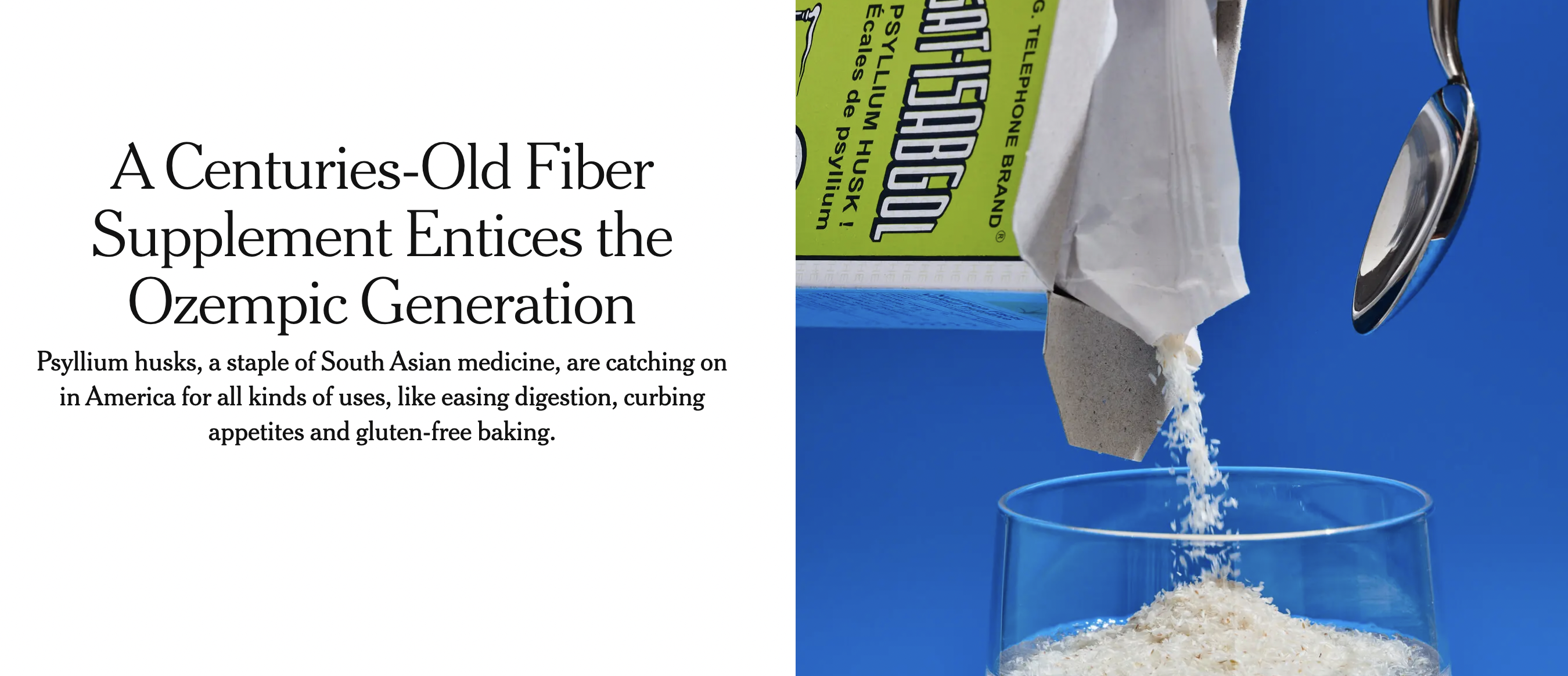AN ANCIENT ASIAN remedy is becoming popular worldwide – just do a web search on “Psyllium Husks” to see how much it is being talked about. In medical dispensaries around the world, it can be found formed into a pill called Metamucil, but more than 200 new psyllium husk products have been launched in the past five years in the US, according to data from Mintel.
The New York Times ran a feature this week on the rising popularity of psyllium husks.
It may be the “hot new thing” in the west, using for fixing digestive problems and enhancing weight loss. Like the trendy Ozempic product, it makes you feel full and less likely to over-eat.

But the substance, derived from a shrub most commonly found in South Asia, has been used for years in the east.
It is found in many Indian remedies, and also in a gelatinous medicinal drink classified in the west as “Chinese herb solid drink”, or CHSD.
What does it do? According to users, it can help with a range of digestion-related issues, from constipation to weight loss—both considered “epidemic” problems, particularly in modern urbanized societies.

Scientists generally agree with users in this case, saying that the stuff does appear to be beneficial to the processes in the intestine.
What’s the proof? There are several studies, but let’s consider one recent detailed one.
In 2021, scientists did a series of experiments comparing a widely used western constipation remedy, Lactulose, with CHSD, which contains psyllium husk, sweet almond, semen sesami nigrum, and hemp seed.
They used constipated rodents for the experiments.

The study, performed by a team of scientists from universities in Guangzhou, found that both substances appeared to solve constipation problems equally well.
However, they differed in the state in which they left the gut bacteria, the internal microbiome that plays a key part in keeping people healthy. The Chinese herb medicine was beneficial to more types of gut bacteria.
Furthermore, the scientists reported: “CHSD could elevate gastrin expression, which also promoted intestinal peristalsis in serum, while lactulose did not have this effect.”

What this means is that the Chinese herb drink was beneficial for intestinal peristalsis, the medical term for the contractions occur inside the body that enable a successful visit to the toilet for “number twos”.
Now the bad news. In its normal powdered state, it tastes like sawdust, and diluted, it gains an unappetizing glutinous texture. Chinese medicine practitioners have traditionally focused on making stuff good for you—and not on making it taste nice.
But the good news is that the new focus on the psyllium husk means that manufacturers everywhere are now working at finding ways to making it palatable.
Image at the top by Andres Ayrton/ Pexels.
